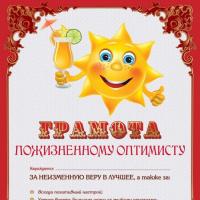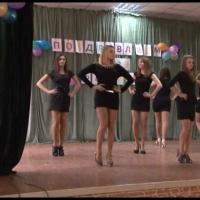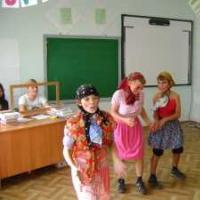Consulting and informing consumers in a pharmacy. lesson outline. It is here that consulting plays a crucial role, because a detailed story about the taste or technical parameters of goods, their advantages, creates trust in buyers for the product.
In order to implement the relevant provisions of the order of Rospotrebnadzor dated 06.04.2009 No. 318 "On improving the system of informing and advising consumers", the Federal Service for Supervision of Consumer Rights Protection and Human Welfare is sending a draft methodological recommendation on the creation of consulting centers for consumers on the basis of FGUZ - hygiene centers and epidemiology for practical application when organizing the activities of these divisions.
If there are proposals for optimizing the activities of consulting centers and comments on the draft methodological recommendations, please submit them to the Federal Center for Hygiene and Epidemiology of Rospotrebnadzor by December 30, 2009.
Appendix: for 10 sheets, in 1 copy.
Methodological recommendations for the creation of consulting centers for consumers in the structure of the Federal State Healthcare Institution "Center for Hygiene and Epidemiology" in the constituent entities of the Russian Federation and on railway transport
The purpose of these guidelines is to develop a network of consulting centers for informing and consulting citizens on consumer protection and training, created in the structure of the Federal State Healthcare Institution - centers of hygiene and epidemiology in the constituent entities Russian Federation and on railway transport, and ensuring their activities on the basis of a unified organizational and methodological approach.
Real guidelines developed in cooperation with the bureau of the German-Russian project "Improving food safety and consumer protection". In developing this document, the experience of consulting and informing consumers in Russia and Germany was used.
1 area of use
2. Normative references
2.1. Law of the Russian Federation "On Protection of Consumer Rights" dated 07.02.1992 No. 2300-1.
2.2. Resolution of the Government of the Russian Federation "On Approval of the Regulation on the Federal Service for Supervision of Consumer Rights Protection and Human Welfare" dated June 30, 2004 No. 322.
2.3. Order Federal Service on supervision in the field of consumer rights protection and human well-being "On approval of the main activities of the Federal Service for Supervision in the field of consumer rights protection and human well-being for 2009" dated 23.10.2008 No. 397.
2.4. Order of the Federal Service for Supervision of Consumer Rights Protection and Human Welfare "On improving the system of informing and consulting consumers" dated 06.04.2009 No. 318.
2.5. Charter of the Federal State Healthcare Institution "Federal Center for Hygiene and Epidemiology" of the Federal Service for Surveillance on Consumer Rights Protection and Human Wellbeing, approved by Order No. 708 of Rospotrebnadzor dated 30.08.2005.
2.6. Charter of the Federal State Healthcare Institution "Federal Center for Hygiene and Epidemiology for Railway Transport".
2.7. Federal Charters government agencies health care - centers of hygiene and epidemiology in the constituent entities of the Russian Federation.
3. General provisions
3.1. Considering the importance and significance of informing and consulting consumers on consumer protection issues, the creation of a network of consultation centers will expand the possibilities for ensuring the legal rights of citizens at the regional level.
3.2. The unification of the organization of the activity of the consulting centers is intended to enhance the efficiency and effectiveness of the work of the centers for the provision of consulting and information services to citizens.
4. Organizational structure
4.1. A three-tier system is offered organizational structure network of advisory centers: federal, regional and local levels.
4.1.1. The federal level includes the Center for Coordination and Methodological Support for the Development of Consulting Centers for Consumers, created on the basis of the Federal State Healthcare Institution "Federal Center for Hygiene and Epidemiology" of Rospotrebnadzor and acting on the basis of a regulation approved in accordance with the established procedure.
4.1.2. At the regional level, consulting centers are being created on the basis of FGUZ - centers of hygiene and epidemiology in the constituent entities of the Russian Federation and a consulting center on the basis of FGUZ "Federal Center for Hygiene and Epidemiology for Railway Transport".
4.1.3. At the local level, there are consulting centers created on the basis of branches of the Federal State Healthcare Institution - centers of hygiene and epidemiology in the constituent entities of the Russian Federation and consulting centers on the basis of branches of the Federal State Healthcare Institution "Federal Center for Hygiene and Epidemiology for Railway Transport".
5. Equipment
5.1. The activities of the Center for Coordination and Methodological Support for the Development of Consulting Centers are supported by funds allocated by the Federal State Healthcare Institution "Federal Center for Hygiene and Epidemiology" of Rospotrebnadzor from funds federal budget and from funds from income-generating activities.
5.2. Support for the activities of consulting centers on the basis of FGUZ - centers of hygiene and epidemiology in the constituent entities of the Russian Federation and on railway transport is carried out at the expense of funds allocated by FGUZ - centers of hygiene and epidemiology in the constituent entities of the Russian Federation and on railway transport from the federal budget and from income generating funds activities.
5.3. Support for the activities of consulting centers on the basis of branches of FGUZ - centers of hygiene and epidemiology in the constituent entities of the Russian Federation and on railway transport is carried out at the expense of funds allocated to branches of FGUZ - centers of hygiene and epidemiology in the constituent entities of the Russian Federation and on railway transport from the federal budget and funds from the activity income.
5.4. The employees of the Center for Coordination and Methodological Support for the Development of Consulting Centers, Consulting Centers and Consulting Centers should be provided with separate jobs.
5.5. Consultants' workplaces should be equipped with office furniture, modern computer technology, have access to the Internet, as well as legal and information systems, are provided with telephone and other types of communication.
5.6. The location of the consultants' working areas of the Center for Coordination and Methodological Support for the Development of Consulting Centers, Consulting Centers and Consulting Centers should allow consulting both a wide range of consumers on general issues, and individually on specific issues. In addition, it is necessary to equip places for independent work of visitors with an information base for consulting - Infoteka.
5.7. It is recommended to post on the websites of FGUZ - centers of hygiene and epidemiology in the constituent entities of the Russian Federation and on railway transport information about the location of the consultation center, point, contact numbers, work schedule (reception of citizens), employees of the center, point.
5.8. The counseling center should be equipped with information stands relevant topics. It is recommended to set up stands on topics, for example, quality and shelf life of goods, the possibility of exchanging goods, consumer obligations, and others. It is recommended that information be presented in the form of comprehensible diagrams rather than solid text.
5.9. The counseling center should have a sign indicating the hours of operation, telephone numbers where you can get advice.
5.10. The Center for Coordination and Methodological Support for the Development of Consulting Centers, as well as Consulting Centers on the basis of FGUZ Centers for Hygiene and Epidemiology in the constituent entities of the Russian Federation and on railway transport, have the right to use the agreed logo in their activities.
6. Staffing of the center for coordination and methodological support for the development of consulting centers for consumers
6.1. The number of consultants of the center for coordination and methodological support of the development of consulting centers for consumers should correspond to the tasks set for the center.
6.2. The head of the Center for Coordination and Methodological Support for the Development of Consulting Centers for Consumers is appointed as the Chief Physician of the Federal Center for Hygiene and Epidemiology of Rospotrebnadzor.
7. Staffing of consulting centers on the basis of FGUZ - centers of hygiene and epidemiology in the constituent entities of the Russian Federation and on railway transport.
7.1. The number of consultants of the consulting center is determined staffing table FGUZ - centers of hygiene and epidemiology in the constituent entities of the Russian Federation and on railway transport, taking into account the needs for consulting consumers in this region and should be at least 3 consultants per constituent entity of the Russian Federation.
7.2. It is recommended to create consulting centers in the branches of FGUZ centers for hygiene and epidemiology in the constituent entities of the Russian Federation and on railway transport, based on the staffing capabilities and taking into account the highest concentration of the population.
7.3. Equipment staff a consulting center is possible by hiring new specialists, attracting already working employees to work, or, in the absence of employees with the necessary specialization, it is possible to organize additional professional education (refresher courses).
It is allowed to attract specialists for work on the basis of a civil law contract.
8. Documentation
8.1. Each consulting center must have the following set of documents:
1) information base for consulting (Infotech) on paper and electronic media;
2) forms of registration of provided consulting and other services ();
3) forms of statistical reporting, developed by the Federal State Healthcare Institution "Federal Center for Hygiene and Epidemiology" of Rospotrebnadzor;
4) forms of maintaining unified data banks (court decisions, unscrupulous business entities, etc.).
8.2. In the consulting center, it is necessary to form a base of regulatory and methodological documentation on consulting in the field of consumer protection - Infotech - to provide consultants with the materials necessary for consulting, and independent work of visitors of consulting centers to obtain information (self-informing). The info library is a systematized unified information base, which includes materials necessary and sufficient for consulting in the following sections: sale of goods, provision of paid services, performance of work.
8.2.1. Info library requires professional selection and systematization of information, constant updating, must meet the following criteria:
Relevance;
Scientific validity;
Credibility;
Availability of presentation of materials;
Ease of use.
8.3. The consulting center keeps a daily record of the provided consulting and other services, for which uniform registration forms are used:
1) consultations by phone;
2) consultations at a personal appointment;
3) interactive consultations;
4) the number of submitted claims, claims, etc .;
5) the number of examinations of goods carried out;
6) the number of repeated calls;
7) the number of independent calls to Infotech (self-informing), etc.
8.4. Consulting centers form a bank judgments, which contains information about the judicial practice of Rospotrebnadzor, public associations of consumers, decisions of courts of various instances.
Data are submitted to a single bank of court decisions at least once a quarter.
The court decisions made and entered into force are placed in the databank of court decisions.
Court decisions, placed in the databank, should have a complete and abbreviated version (if the consumer is only interested in the result). Name of consumer, participant trial, is removed from the solution and replaced with a symbol. The name of the company or entrepreneur involved in the proceedings is retained in full.
9. Consulting consumers
9.1. Consulting centers provide consulting and training to consumers and entrepreneurs to increase their legal knowledge, awareness of their rights and obligations.
9.2. It is advisable to conduct counseling using the following forms:
At a personal appointment at a counseling center;
By phone;
Remote consulting (via the Internet - an interactive page of the consumer, heading "questions and answers", communication through email and the ICQ program);
With the help of Infotek (i.e. self-informing of consumers);
Organization of group consultations (in enterprises, organizations, at mass actions to protect consumer rights);
Consulting through the means mass media(issue of magazines for consumers, heading "question-answer" in newspapers, etc.).
9.3. When organizing consulting, it is advisable to assign consultants to a certain range of topics.
When consulting, it is recommended to organize thematic "hot lines" on consumer protection and education, conduct "open lessons" to increase the level of legal literacy of children and adolescents, conduct thematic seminars, "round tables" in cooperation with public organizations on consumer protection.
10. Training
10.1. The Center for Coordination and Methodological Support for the Development of Consulting Centers for Consumers conducts the following types learning:
Additional professional education(refresher courses) for specialists in consumer protection, as well as consultants of consulting centers and points, on the basis of a license for educational activities;
Training seminars for individual entrepreneurs and representatives legal entities.
10.2. Consulting centers and points have the right to conduct training for consumers, individual entrepreneurs and representatives of legal entities in the form of thematic seminars, round tables, lectures on topical issues of consumer protection.
10.3. Consulting centers and points may be charged with organizing and conducting training for representatives of legal entities, individual entrepreneurs whose activities are related to production, storage, transportation and sale. food products and drinking water, education and training of children, communal and consumer services for the population, as well as decreed categories of the population.
The training procedure is established by the relevant regulatory legal acts of the Russian Federation.
11. Financial activities
11.1. The main activities of the Center for Coordination and Methodological Support carried out at the expense of the federal budget on behalf of the Federal Service are:
Organizational, scientific, methodological and information support of the activities of the organizations of the Federal Service and rendering them practical assistance on the development of the consumer information and consultation system;
Implementation on behalf of the Federal Service for Educational Activities by organizing and holding conferences, meetings on consumer protection;
11.2. The main activities of consulting centers and points carried out at the expense of the federal budget on behalf of the departments of Rospotrebnadzor in the constituent entities of the Russian Federation are:
Implementation on behalf of departments of educational activities by organizing and holding conferences, meetings;
Conducting thematic "hot lines", "round tables" on the protection of consumer rights,
Participation in conducting "open lessons" in educational institutions to improve the level of legal literacy of children and adolescents.
11.3. The center for coordination and methodological support, consulting centers and points are carried out under contracts of a compensated nature, including state contracts within the framework of the implementation of federal, regional and local targeted programs, with individuals and legal entities, public authorities and bodies local government the following types of income-generating activities:
Provision of advisory and information services, including on issues related to the preparation of documents that contribute to the protection of consumer rights, compliance with the rules of sale certain types goods, performance of work, provision of services, marketing services in the field of consumer protection;
Publishing and distributing printed materials, including scientific and methodological, reference, information and advisory materials, produced at the expense of funds received from income-generating activities, containing the results of activities to ensure consumer protection;
Organization and holding of seminars on consumer protection issues.
12. Coordination of the activities of consulting centers and its methodological support
12.1. The Center for Coordination and Methodological Support for the Development of Consulting Centers for Consumers performs the functions of a methodological center for the implementation of a unified methodological approach to the creation and operation of consulting centers for consumers on the basis of FGUZ - centers of hygiene and epidemiology in the constituent entities of the Russian Federation and on railway transport.
12.2. Center for coordination and methodological support for the development of consulting centers for consumers:
Coordinates the work of consulting centers created on the basis of FGUZ - centers of hygiene and epidemiology in the constituent entities of the Russian Federation and on railway transport;
Coordinates the activities of working groups created to develop methodological documents that support the activities of consulting centers and points;
Develops, submits for discussion draft methodological documents, and also approves documents on the activities of consulting centers in coordination with Rospotrebnadzor;
Coordinates the training and retraining of specialists from consulting centers and points;
Provides methodological and advisory assistance to specialists of consulting centers and points on issues that arise in them in the course of their activities;
Creates a federal Infotech;
Interacts with the media and public associations of consumers on the protection of consumer rights, the activities of consulting centers and points;
Analyzes the activities of consulting centers for consumers, including statistical reports, provides an exchange of experience of their work;
Places on the website of FGUZ "Federal Center for Hygiene and Epidemiology" of Rospotrebnadzor generalized information on the activities of the network of consulting centers and points;
Regularly submits to Rospotrebnadzor, Rospotrebnadzor departments in the constituent entities of the Russian Federation and on railway transport, FGUZ - centers of hygiene and epidemiology in the constituent entities of the Russian Federation and on railway transport, reports on the results of the work of consulting centers for informing and consulting the population;
Organizes and holds annual meetings based on the results of the network of advisory centers and points.
12.3. Consulting centers interact with the Center for Coordination and Methodological Support for the Development of Consulting Centers for Consumers in the following areas:
Submission of quarterly reports in accordance with the established form and no later than the 25th day of the last month of the quarter;
Submission of relevant information, reference and legal materials for placement in the federal Infotech;
Submission of information for placement in the data bank of court decisions;
Obtaining information on the activities of consulting centers and points (receiving consulting assistance);
Participation in the discussion of draft methodological documents sent by the Center for Coordination and Methodological Support for the Development of Consulting Centers for Consumers.
12.4. The departments of Rospotrebnadzor in the constituent entities of the Russian Federation and in railway transport interact with the Center for Coordination and Methodological Support for the Development of Consulting Centers for Consumers in the following areas:
Sending specialists to participate in working groups created for the purpose of methodological support and development of a package of documents necessary to support the activities of consulting centers and points;
Participation in the discussion of draft methodological documents sent by the Center for Coordination and Methodological Support for the Development of Consulting Centers for Consumers;
Obtaining information on the activities of consulting centers and points;
Sending proposals to the Center for Coordination and Methodological Support for the Development of Consulting Centers for Consumers on how to optimize the activities of consulting centers and points.
12.5. The departments of Rospotrebnadzor in the constituent entities of the Russian Federation and on railway transport interact with consulting centers based on the Federal State Institution of Healthcare - centers of hygiene and epidemiology in the constituent entities of the Russian Federation and on railway transport in the following areas:
Selection of up-to-date reference and legal information for placement in the Infotech;
Selection of information for placement in the data bank of court decisions;
Participation in the review of counseling schemes used by counseling centers;
Participation in meetings, round tables, as well as other events.
12.6. Control over the activities of the Center for Coordination and Methodological Support for the Development of Consulting Centers for Consumers is carried out by the Federal Service for Supervision of Consumer Rights Protection and Human Welfare.
Appendix No. 1
Register of incoming requests
* Order of filling:
The register of incoming requests is filled in by the consultant of the consulting center and the point that directly provided consulting services after each consultation. Each entry is confirmed by the signature of the consultant.
Letter of the Federal Service for Supervision of Consumer Rights Protection and Human Welfare dated September 7, 2009 No. 01 / 13088-9-32 "On the direction of the draft methodological recommendations"
Consumer properties.
Fur products have high aesthetic, ergonomic, technological properties and sufficient reliability. It also has such properties as: heat protection, water resistance, wind resistance, vapor permeability, air permeability, good cleanability.
Care methods.
Fur is better preserved in the cold, he does not like heat, he also does not like washing or chemical treatments. He needs space and regular, professional cleaning.
Create good conditions storage. The cabinet where the product is stored should not let in light, as the fur can burn out and tarnish. Also keep it away from heat and make sure the product can breathe, give it a free space.
Hang the fur garment on a wide, large, long-necked hanger. No wire hangers. Best of all, ask the manufacturer for the most suitable hanger for the product.
If suddenly your product gets wet, it's okay. For most furs, light rain and light snow are not terrible. Just shake the product and hang it up to dry in a well-ventilated area. Do not try to speed up the drying process with a hair dryer or other heat source. Fur does not like heat. After the product is dry, shake it again. Do not brush or clean it. If the fur is tough, you can simply flatten it with your hand.
If the fur is soaked through, immediately take it to a specialized salon for professional care.
If the fur coat (fur) is very dusty, spread it on a wet sheet with the fur down and beat vigorously. Also, the room or closet where your fur things are stored should be clean and ventilated, making sure that the fur coat comes into contact with other clothes as little as possible.
Storage.
When stored properly, fur products serve their owners for decades. You just need to know a few simple rules: fur loves cold, is afraid of heat, sun and chemicals. Fur needs air. It is necessary to store the fur in a free dark space, but in some case not in the light, since from the light, the fur fades and loses its color.
Ticket number 2.
1. Classification and characteristics of the range and quality of household watches.
Watches are classified according to the following main features: by purpose, method of operation, source of energy, type of indication, type of oscillatory system (size) of the frame of the mechanism, gender and age of the consumer, level of functional properties.
According to the assortment, watches are distinguished: classic, special, combined and watches for measuring short periods of time.
Classic watches are designed to measure the current time and are the most common group of watches.
Special watches include watches for diving (scuba diving), surfing (sliding on water), chess watches, "Komandirskie" watches, etc.
Combined clocks include an alarm clock, a pendant clock, a calculator clock, a pager clock, a video camera clock, a radio clock, and others.
Job instructions
Seller not food products
Description of works. Customer service : offering and displaying goods, demonstrating them in action, helping in the selection of goods. Consulting consumers about the purpose, properties, quality, design features of goods, rules for caring for them, the state of fashion of the current season; offering new interchangeable goods and related assortment goods, calculating the purchase price and issuing a sales receipt. Registration of a passport for a product that has a warranty period of use. Packaging goods, handing over a purchase or handing it over for control. Control of the timeliness of replenishment of the working stock of goods, their safety, serviceability and correct operation of equipment, cleanliness and order at the workplace. Preparation of goods for sale: unpacking, assembling, picking, checking operational properties, etc. NS preparation of the workplace: checking the availability and serviceability of trade and technological equipment, inventory and tools; placement of goods by groups, types and grades, taking into account the frequency of demand and convenience of work. Receiving and preparing packaging material. Cleaning of unsold goods and containers. Preparation of goods for inventory. If necessary, work on cash registers and special computer systems, reconciliation of the sales amount with the readings of cash counters. Counting checks (money) and submitting them in accordance with the established procedure.
Must know: assortment, classification, bar coding, characteristics and purpose of goods, methods of using and caring for them, rules for decoding the article, labeling and bar codes; retail prices; methods of selection, measurement of cut, picking of goods; product size scales and rules for their determination; basic requirements of State standards and other normative documents on standardization for the quality of goods, packaging and labeling; types of marriage and rules for the exchange of goods; warranty periods for the use of goods; the device and rules for the operation of serviced commercial and technical equipment, cash registers and special computer systems; ways to reduce the loss of goods; Law of the Republic of Belarus "On Protection of Consumer Rights", Basic Rules of Conduct retail and trade and production activities on the territory of the Republic of Belarus; rules for the sale of goods in accordance with the assortment of the store.
Required vocational education or training according to an established program in courses.
Description of works. In addition to the requirements for the seller non-food products III category, performance of the following works: participation in the receipt of goods, notification of the administration about the presence of low-quality goods, expired, with hidden defects that do not correspond to documents certifying quality and safety; preparation and design of gift and holiday sets; in-store window dressing; control of their condition; study of consumer demand.
Must know: assortment, characteristics, purpose of goods, methods of using them and caring for them; the state of fashion of the current season; techniques and methods of active service of various contingents of consumers, taking into account their gender, age, level of knowledge about the product and other features; the main types of raw materials and materials used for the manufacture of goods, methods of their recognition; main suppliers of goods, features of the range and quality of their products; basic principles of the arrangement of trade and technological equipment; design principles for in-store showcases; methods of summarizing data on customer demand; rules for the sale of goods in accordance with the assortment of the store.
Required work experience in the profession of "seller of non-food products" of the III category at least 2 years.
Description of works: In addition to the requirements for the seller of category II non-food products, the following works should be performed: receiving goods from the warehouse; participation in the inventory; preparation and execution of product reports, acts of marriage, shortage, re-grading of goods and acceptance certificates for the transfer of material values; resolution of disputes with consumers in the absence of administration; management of the work of sellers of non-food products of lower qualifications.
Must know: the procedure for accepting goods from suppliers; rules for the rejection of goods; basic requirements of standards and specifications for the quality of goods, containers and their labeling; principles of window display design; the procedure for carrying out an inventory, the procedure for drawing up and processing commodity reports, acts for marriage, shortage, re-grading and acceptance certificates for the transfer of material values; Law of the Republic of Belarus "On Protection of Consumer Rights", Basic Rules for Conducting Retail Trade and Trade and Industrial Activity on the Territory of the Republic of Belarus; rules for the sale of goods in accordance with the assortment of the store.
Required secondary specialized (vocational) education without requirements for work experience or work experience in the profession of "seller of non-food products" of the II category for at least 3 years.
Grocery seller
Description of works. Customer service: cutting, weighing and packing goods, calculating the purchase price, checking the details of the check, issuing the purchase. Consulting consumers about the properties, taste characteristics, culinary purpose and nutritional value of certain types of goods, proposing new, interchangeable goods and related assortments. Control of the timeliness of replenishment of the working stock of goods, their safety, serviceability and correct operation of commercial and technological equipment, cleanliness and order at the workplace. Preparation of goods for sale: checking the name, quantity, grade, price, condition of the packaging and correct labeling; unpacking, visual inspection, stripping, cutting, cutting of goods. Preparation of the workplace : checking the availability and serviceability of equipment, inventory and tools; sharpening, editing tools, setting scales. Receiving and preparing packaging material. Placement of goods by groups, types and grades, taking into account the frequency of demand and convenience of work. Filling in and attaching price labels. Counting checks (money) and submitting them in accordance with the established procedure. If necessary, work on summing machines and special computer systems, reconciliation of the amount of cash receipts with the readings of cash counters. Cleaning of unsold goods and containers. Preparation of goods for inventory.
Must know : assortment, classification, bar coding, characteristics, purpose, nutritional value and retail prices for goods; signs of good quality of goods; rates of natural loss of goods and the procedure for their write-off; rules for the operation of serviced commercial and technological equipment, cash registers and special computer systems; techniques and methods of customer service; ways to reduce product losses; sanitary rules and norms; Law of the Republic of Belarus "On Protection of Consumer Rights"; Basic rules for conducting retail trade and trade and production activities on the territory of the Republic of Belarus; rules for the sale of goods in accordance with the assortment of the store.
Required vocational education or training according to an established program.
Description of works: in addition to the requirements for the seller of food products of the III category, the following types of work: participation in the receipt of goods for replenishment of showcases and working stock in the trading floor; notification to the administration of the presence of expired goods, not suitable for sale, with hidden defects, not corresponding to the documents certifying quality and safety; decoration inside store windows, control of their condition; study of consumer demand.
Must know: the main types of raw materials used for the manufacture of goods; methods of reducing the loss of goods during storage and sale; design principles inside store windows; main suppliers, features of the range and quality of their products; the basic principles of the structure of the serviced trade and technological equipment; techniques and methods of serving various contingents of consumers, taking into account their gender, age, level of knowledge about the product and other features; sanitary rules and norms; Law of the Republic of Belarus “On Protection of Consumer Rights,“ Basic Rules for Conducting Retail Trade and Production Activities in the Territory of the Republic of Belarus; rules for the sale of goods in accordance with the assortment of the store.
Required work experience in the profession “seller of food products” of the III category at least 2 years.
Description of works. In addition to the requirements for the seller of food products of the II category, the following works are performed: receipt of goods from the warehouse, determination of their quality by organoleptic characteristics, selection of samples for laboratory analysis; preparation of applications for the repair of trade and technological equipment; drawing up of commodity reports, acts for marriage, shortage, re-grading of goods and acceptance certificates for the transfer of material values; participation in the inventory; resolution of disputes with consumers in the absence of representatives of the administration; managing the work of lower-skilled food sellers.
Must know: the procedure for accepting goods from suppliers; basic requirements of standards and specifications for the quality of goods, containers and their labeling; rules for the rejection of goods; the simplest organoleptic methods for determining the quality of goods; rules for sampling and sampling to determine the food suitability of goods; principles of window showcase design; the procedure for carrying out an inventory, drawing up and processing of commodity reports, acts for marriage, shortage, re-grading of goods and acceptance certificates for the transfer of material values; progressive forms and methods of customer service; sanitary rules and norms; Law of the Republic of Belarus “On Protection of Consumer Rights”, Basic Rules for Conducting Retail Trade and Trade and Industrial Activity in the Republic of Belarus; rules for the sale of goods in accordance with the assortment of the store.
The rules of good pharmacy practice introduced in Russia presuppose the obligatory consultation of the buyer in the process of dispensing (selling) the goods of the pharmacy assortment.
The normative definition of the term "pharmaceutical consulting" is included in the conceptual apparatus of the Rules of Good Pharmacy Practice for Medicinal Products for Medical Use, approved by order of the Ministry of Health No. 647n dated 31.08.2016.
Pharmaceutical Consulting - access to information on the procedure for the use or use of pharmacy goods, including the rules of dispensing, methods of administration, dosage regimens, therapeutic action, contraindications, drug interactions while taking each other and (or) with food, rules for storing them in at home
Subparagraph "c" of clause 8 of Order No. 647n specifies the concept of pharmaceutical consulting, making it the responsibility of the head of the pharmacy organization to provide the consumer with information "on the procedure for the use or use of pharmacy goods, including the rules for dispensing, methods of administration, dosage regimens, therapeutic action, contraindications, the interaction of drugs with each other and (or) with food, the rules for storing them at home" .
Order of the Ministry of Health No. 403n dated July 11, 2017 "On Approving the Rules for Dispensing Medicines" specifies the requirements for counseling when dispensing medicines. According to clause 16 of the order, the pharmaceutical specialist must inform the buyer of the drug "about the regimen and doses of its administration, the rules of storage at home, about the interaction with other drugs." This short list should be followed by pharmaceutical specialists at the present time.
The Order reiterates the consultation requirements. Pharmaceutical consulting is now an integral part of functional job descriptions pharmaceutical worker, because the professional standard requires all pharmaceutical workers to have, incl. access to information and rules for the use of the drug.
The necessary information should be provided to the consumer, but if he does not want to listen, it is necessary warn about the need to read the instructions, about the dosage regimen, about storing the drug at home in accordance with the manufacturer's recommendations, indicated by the topics on the package.
Order No. 647n also includes pharmaceutical consulting in the knowledge update program for newly hired pharmacists and pharmacists (clauses "in" clause 14) and refers it to the main production functions pharmaceutical workers (item "b" item 15). When drawing up job descriptions for pharmaceutical workers, this provision should be included in the "Responsibilities" section.
For the provision of pharmaceutical consulting services in a pharmacy, a special area may be allocated, including with the installation of seating (clause 53). In addition, when selling drugs, a pharmacy employee is prohibited from hiding information from the buyer about the availability of other drugs with similar INNs, as well as about the ratio of prices for these drugs (clause 54).
Pharmacy consultation area with seating
The pharmacy assortment includes not only medicines and medical products, but also other goods that can be dispensed by specialists without a pharmaceutical education. The legislation does not prohibit the hiring of consultants for their implementation who do not have the qualifications of a pharmacist or pharmacist; the decision on the expediency of such a personnel decision remains at the discretion of the management of pharmacies.
Goods other than medicines and medical devices, from the point of view of profitable profit, play, as a rule, a secondary role. For their implementation, no special training is required, the horizons and professional knowledge of the first-class leaders, of course, allow them to successfully cope with this function.
In the absence of pharmacy organizations in settlements In rural areas, pharmaceutical consulting is carried out by medical personnel of outpatient clinics, feldsher-obstetric points, centers (departments) of general medical (family) practice, subject to the availability of appropriate training.
The duration of the consultation and the amount of information provided depends on the specific needs of the buyer, his educational and cultural level. Particular attention should be paid to the storage conditions of the dispensed drug at home, regardless of the presence or absence of appropriate warnings and inscriptions on the packaging or in the instructions for use. The consultation is carried out taking into account the dosage form, packaging features, air temperature at different times of the year, protection from sunlight, humidity, etc.
Pharmaceutical Consulting Requirements
- Professionalism.
- Security.
- Efficiency.
- Personal approach, accessibility to the patient.
- Adequacy.
- Rationality.
- The need to mention a consultation with a doctor.
- Use of an up-to-date regulatory framework.
- Proposal for the purchase of the drug.
Key aspects of pharmaceutical consulting
- Determine the need special conditions vacation LP.
- Indicate the need for prescription drug dispensing.
- Determine the visitor's problem, ask clarifying questions.
- Indicate the need for a mandatory visit to a specialist.
- Clarify the specific characteristics of the patient (age, pregnancy, chronic illness, medication, etc.).
- Name the pharmacotherapeutic group and the effect of the drug.
- Offer drugs as an alternative and justify your suggestions.
- Inform about the rules of admission, the course of therapy.
- Inform about food and drug interactions.
- Inform about the rules of storage at home.
- Inform about side effects.
The regulation on the licensing of pharmaceutical activities, approved by the Government of the Russian Federation No. 1081, includes in the licensing requirements for pharmaceutical organizations the observance of the rules of good pharmacy practice (clauses "d", clause 5).
Clause 6 of this provision classifies non-compliance with this requirement as gross violations qualified in accordance with Part 4 of Art. 14.1 of the Administrative Code of the Russian Federation and entailing:
- For persons exercising entrepreneurial activity without forming a legal entity, - a fine in the amount of 4 to 8 thousand rubles. or administrative suspension of activities for up to 90 days
- For officials - a fine from 5 to 10 thousand rubles.
- For legal entities - a fine from 100 to 200 thousand rubles. or administrative suspension of activities for up to 90 days.
Pharmaceutical consulting is carried out within the educational level of a pharmaceutical specialist and in no case should replace the recommendations of the attending physician. Violation of this principle may lead to inadvertent harm to the health of the visitor, which entails civil or criminal liability. The consequences depend on the degree of harm caused to health (light, medium or severe, established by a forensic medical examination), as well as on the circumstances of the offense.
Shopping customer service Is a set of operations performed by store employees when selling goods. It should be organized so that buyers can purchase all the desired items with the least investment of time and with the greatest convenience.
General scheme trade service buyers in stores:
1) meeting buyers - the initial operation of the shopping service process. To attract attention, a variety of advertising media are used, as well as interior decoration. When visiting a store, the opinion of the buyer about him is formed, so here he must meet a friendly and attentive attitude. Cleanliness is essential. trading floor and appearance sellers;
2) identification of buyers' demand - the seller is obliged, without waiting for the buyer's question, to politely ask what goods he wants to purchase. Having ascertained the intentions, the seller must offer the buyer the appropriate goods or, if not needed, recommend a substitute product. In self-service stores, buyers choose the product themselves, but the seller can provide advice;
3) consultation and display of goods - while consulting the buyer, the seller must know the properties of the goods, be able to
Show the product in action (for example, technically complex products - televisions, tape recorders), know the norms of consumption of goods (for example, the consumption of fabric for sewing a product), modern directions fashions, conditions of storage and care of goods, etc. In some cases, shops attract highly qualified specialists for consultation - dietitians, fashion designers, etc. Consultations should be exhaustive, and advice - objective. There should be no imposition of a product, no desire to sell it at all costs;
4) technical operations for the release of goods - selection the desired product, measuring, weighing, slicing, etc. The performance of such operations depends on the assortment of goods. So, when selling food products, weighing is the main procedure. It is typical for the dispensing of a number of non-food products (bulk materials, nails, etc.). When selling fabric, tulle products, braid, ribbons, electric cord, the most laborious part is measuring. When selling by self-service, the selected goods are placed in inventory baskets and sent with them to the settlement node, where purchases are paid for. This is also where the operations for packing and handing over the purchase are carried out;
5) settlement for the purchased goods is an important part of the shopping service for buyers. Accurate adherence to the calculation rules, the choice of its most appropriate system, the selection of cash registers and the training of persons associated with the calculation, can significantly increase the speed of customer service and the culture of trade;
6) packaging of goods - the final operation of the process of shopping customer service, which requires certain skills from the seller.
 Comic, funny scenes for teenage and adult audiences
Comic, funny scenes for teenage and adult audiences Diploma templates blank download
Diploma templates blank download Scenarios for Defender of the Fatherland Day ★ (February 23)
Scenarios for Defender of the Fatherland Day ★ (February 23) Cool nominations for rewarding employees
Cool nominations for rewarding employees Congratulations, invitations, scripts, toasts, frames, cards, contests for you in the Holiday Center!
Congratulations, invitations, scripts, toasts, frames, cards, contests for you in the Holiday Center! Playful scripts for the 50th anniversary
Playful scripts for the 50th anniversary Mom's Day Script "Who Lives in the Wizarding World?
Mom's Day Script "Who Lives in the Wizarding World?